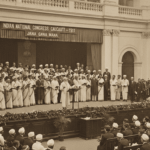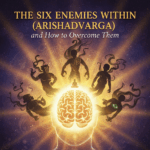BALOCHISTAN – A NATION WAITING TO BE BORN?
PART – 4: BALOCHISTAN INDEPENDENCE AND INTERNATIONAL SUPPORT
United Nations
37. While Balochistan meets all the criteria for nationhood at the UN, international support for recognition of its independence has been subdued. On 16 May 2025, UN Deputy Spokesperson Farhan Aziz Haq said, “Well, we just refer you back to the UN Charter, including the fact that the Charter upholds the sovereignty and the territorial integrity of all states, and that would include Pakistan.” That’s a pretty dumb argument since, historically, the same United Nations has been totally inept in upholding the sovereignty and territorial integrity of any state that the USA, for example, has intervened in – Vietnam, Iraq, Kosovo, Syria being just a few cases in point. The most glaring and recent example is of Palestine, which is recognized by about 147 of the 193 member states of the United Nations, representing over 75% of the international community, yet remains a non-UN member because of the US veto. So, the UN can only whisper and whimper, it has no teeth, no bite, no ability to uphold anyone’s sovereignty or territorial integrity, especially when the big powers are involved. On its own standing, therefore, the UN’s stance is of little or no consequence.
USA
38. Next, let’s look at the USA. It may be noted that the top leadership of Balochistan – Dr Tara Chand and Mr Razzak Baloch being the most prominent – lives in the USA today. They have the ear of a few US senators and are allowed to move freely and mobilise public opinion in favour of their quest for independence. So, the USA is more than aware – and not dismissive – of their demands. Add to that Donald Trump’s prime motivation in helping broker a peace in Ukraine; to grab its rare earths, minerals and other resources. Given the fact that Balochistan also possesses similar resources, and its leaders-in-exile have readily expressed their eagerness to sign deals with the USA for their exploitation, there is a definite lure for this resource greedy nation to step in. The strategic significance of the Makran coastline – in enhancing US influence as well as neutralising that of China – is also not to be missed.
39. A few other developments indicate US awareness of demands for independence. In 2019, during Trump’s first Presidency, pro-independence Baloch leader Allah Nizar Baloch wrote to him in an open letter, “—- We, the Baloch, have been resisting Pakistan’s state terrorism with knives and Kalashnikovs for the last seven decades. Armed with the most sophisticated weaponry, courtesy of US military aid, Pakistan military has kidnapped, tortured and murdered thousands of Baloch. They trade the organs of our dead, rape our women and burn our villages. —-.” As recently as 30 March 2025, Dr. Tara Chand, President, Baloch American Congress, wrote to Marco Rubio, US Secretary of State, “—- We believe that intervention by the United States would not only save the lives of thousands of Baloch people but also facilitate a peaceful resolution to the conflict in accordance with the universally accepted principle of self-determination. A congressional fact-finding mission to investigate human rights violations in Balochistan would be a constructive first step. We hope that U.S. intervention will initiate a process leading to the ultimate decolonization of Balochistan and an end to the suffering of the Baloch people.“
40. Interestingly, the USA under Trump’s second innings, has made its disaffection with Pakistan quite obvious. Actions such as substantial reduction of military aid and closure of the UGRAD-Pakistan program are mere expressions of this disaffection which emanates principally from three factors. One, the US view that Pakistan’s closer ties with China (especially its BRI and CPEC initiatives), and now Russia, undermine its own influence in the region; two, concerns about Pakistan’s actions and alleged involvement with militant groups including its duplicity and unreliability in dealing with the Afghanistan problem in the past; and three, concerns about the potential for nuclear proliferation or misuse, especially with the ongoing political, ethnic and economic instability in Pakistan. We can therefore expect the USA’s current laissez faire approach towards Balochistan may well spark to life given that a sufficient trigger is available. At the moment it appears to be more focussed on grabbing Balochistan’s mineral wealth.
Afghanistan
41. The Baloch population in Afghanistan is estimated to be around one million. They are the majority in Nimroz Province and have a presence in other regions like Helmand, Farah, and Kandahar. Ample evidence is available to establish Afghanistan’s support for Baloch insurgency, particularly during the Cold War and post-Soviet era. It is no secret that both the main Baloch armed groups, the BLA and BLF, have safe havens, sanctuaries and logistics bases in remote regions of Afghanistan bordering Pakistan, where the writ of the federal government in Kabul may or may not run.
42. In the 1970s the strongest organised Baloch group in search of independence was the Baloch People’s Liberation Front (BPLF), with most of its guerrillas based in training camps in southern Afghanistan and given sanctuary by Mohammad Daoud Khan’s regime. After the death of Aslam Baloch in Kandahar, Afghan officials stated that Afghan police chief Abdul Raziq Achakzai had housed him and other separatists in Kandahar for years. TOLOnews reported that Aslam Baloch had resided in Afghanistan since 2005. BLA leader Balach Marri was killed in Afghanistan in 2007.
43. In the larger strategic construct, it is pertinent to note that the two strategic mountain passes on the Pakistan-Afghanistan border, through which all major communication arteries run, are the pivotal points of dominance in this rugged terrain. While the Bolan Pass lies in Balochistan, the Khyber Pass is in the neighbouring province of Khyber-Pakhtunkhwa which also has similar aspirations of ceding from Pakistan and where the Tehreek-e-Taliban Pakistan (TTP) is currently very active. The Pakistani government has never fully controlled these areas, where the Tribal Chiefs, local warlords and Baloch or Pashtun community leaders have historically exerted strong influence, as they continue to do even today. Equally strategic, if not even more so, is the dominance that can potentially be gained from the Makran Coast of Balochistan, which houses the Chinese built and controlled Gwadar Port. Gwadar is situated on the Arabian Sea, near the Strait of Hormuz, a vital choke point for global oil trade, making it a key access point for international Sea Lanes of Communication (SLOCs). A mere 170 km West is the Chabahar Port in the Sistan-Baluchestan Province of Iran. Numerous lengthy commentaries exist on the strategic importance of these two ports, suffice to say that between India and the oil-rich Middle East, these are pivotal points to dominate the SLOCs as well as project naval and air power in the region.
44. The stance of the current Taliban regime in Afghanistan to the Baloch independence movement is that of sympathy and covert support while publicly remaining non-committal and overtly professing neutrality. The Taliban shows tolerance toward BLA actions because it seeks vengeance against Pakistan resulting from previous historical conflicts, especially Pakistani support of the U.S. – backed Afghan administration during 2001-2021; as well as its potential secret operations against the Taliban during that time. By providing sanctuary to militants targeting Pakistan, the Taliban can maintain leverage against Islamabad regarding conflicts about the Durand Line. Moreover, the Taliban uses BLA as leverage to force Pakistan into granting it diplomatic recognition as well as economic aid.
45. Allied with Tehreek-e-Taliban Pakistan (TTP), the Taliban has another lever of control vis-a-vis Pakistan. Some reports suggest that in distributing the large American weapon stores, after the U.S. forces withdrew in 2021, the Taliban were generous to the BLA and TTP. Perceptible improvement in the operational capabilities of both these groups tend to corroborate this aspect. Lastly, Taliban’s indifference to thriving financial networks throughout Afghanistan, which allow the BLA and TTP to acquire funding from narcotics trade and extortion activities, are vital to the survival of these separatist movements. On its part, Pakistan continues to meddle in Afghan affairs, which is sorely disliked by the Taliban. By way of an example, its air strikes in April 2022 against Baloch militants throughout the Khost and Kunnar provinces of Afghanistan, lead to raising of tensions between Afghanistan and Pakistan.
46. In light of the above, it is inconceivable that any lasting settlement of the Baloch problem can be reached without the involvement of Afghanistan. Since Pakistan continues to ‘run with the hare and hunt with the hounds’, showing no real closeness to the Taliban, the future trajectory of Afghanistan is likely to distance these two neighbours even further. When this reaches a point of cleavage remains to be seen, but that is exactly what the BLA and TTP are hoping for.
Iran
47. On the face of it, Iran opposes Balochistan independence, viewing it as a threat to its own territorial integrity and regional stability. Historically, Iran has cooperated with Pakistan in suppressing Baloch separatist movements, including joint operations in the 1970s and 1980s, and does express its concerns publicly about the potential for instability in the region. Estimates suggest that there are approximately 4.8 million Baloch people in Iran. They are a majority ethnic group in the ‘Sistan and Baluchestan Province’ which borders Pakistani Balochistan but they also inhabit other parts of eastern Iran, including Kerman, Razavi Khorasan, and South Khorasan.
48. While seen to be siding with Pakistan, Iran has also been vociferous in accusing Pakistan of harbouring and supporting separatist groups that target Iranian territory and infrastructure. That lament is not without reason since Pakistan has also tried to meddle into Iranian affairs, on the basis of US instigation as well as the intrinsic animosity between Shia and Sunni Muslims. It needs to be noted that Iran is about 95% Shia while almost 85% of Pakistani muslims are Sunni. In January 2024, Iran launched strikes on targets inside Pakistani Balochistan, claiming they were targeting militants from the Jaish-ul-Adl (Army of Justice) group, which seeks independence for Sistan and Baluchestan Province in Iran.
49. What makes this ethno-religious soup even more murky is the fact that the Baloch people in Iran face severe human rights violations, economic marginalization and political repression. They are systematically deprived of cultural, social, and economic rights, being often treated as third-class citizens. Discrimination pervades all aspects of life, particularly in political participation and access to employment. The Iranian government views the dissemination of Balochi culture and language as an act of treason, furthering its assimilation policies that erode Baloch identity. Similar to West Pakistan, East Iran-both regions inhabited principally by the Baloch people-the area is underdeveloped and neglected, with minimal government investment in infrastructure, education, and healthcare, contributing to widespread poverty and social inequality. Environmental issues such as water scarcity and desertification exacerbate these challenges, threatening the livelihoods of Baloch communities. So, the Baloch people on both sides do have a legitimate grouse to secede. Moreover, the Baloch are predominantly Sunni Muslim, but include a significant Shia population and a unique sect known as Zikris, a unique Shia sect. Zikris are concentrated in the Makran region of Balochistan and hold beliefs that differ from mainstream Sunni and Shia Islam, leading to sectarian tensions and persecution.
50. The situation in West Balochistan has worsened in recent years, particularly in the context of broader unrest in Iran. The protests following the death of Mahsa Amini in 2022 highlighted the growing discontent among ethnic minorities, including the Baloch. The Iranian government’s response to these protests has been marked by violence and repression, with security forces cracking down on demonstrators, leading to numerous deaths and arrests. Additionally, the issue of fuel carriers, known locally as “Sookhtbar,” has come to light in recent years as a key struggle. Many Baloch rely on smuggling fuel across the border to Pakistan as a means of livelihood due to the lack of economic opportunities in the region. However, Iranian authorities have targeted these fuel carriers with brutal force, leading to deadly confrontations.
51. The Baloch population also faces significant challenges regarding undocumented children. Due to the Iranian government’s discriminatory policies, many Baloch children lack official identification, denying them access to education, healthcare, and other essential services, thereby perpetuating cycles of poverty and marginalization. Respecting the right to self-determination for the Baloch people in West Balochistan is crucial for fostering peace, justice, and inclusivity in the region. Addressing their cultural, economic, and political grievances is essential to resolving longstanding tensions and promoting stability. By ensuring that the Baloch can preserve their cultural identity, exercise their linguistic rights, and participate fully in the political process, Iran can move toward a more equitable and inclusive society that benefits all its citizens. Recognizing the unique challenges faced by the Baloch, especially in the context of broader unrest and repression in Iran, is vital for the international community to advocate for their rights and support their aspirations for a just and dignified existence. Therefore, if Iran desires lasting peace on its eastern borders, it will have to sincerely address the demands of its people in these areas; the case for a free Balochistan being one such prime issue.
India
52. Since its independence in 1947, India has traditionally taken a diplomatic (another word for non-explicit or unclear) approach towards Balochistan’s independence. In the absence of any formal pronouncements, it can only be surmised that its policy makers have been unable to chart out a clear path between capitalising on the immense advantages that this potentially accrues vis-à-vis the adverse ramifications that could result. That may be changing in the aftermath of Operation Sindoor, during the currency of which a fresh spurt of Balochi independence fervour surfaced. If India does nothing, it may well be a golden opportunity lost, and if it does-such as allowing the opening of a Baloch Embassy in New Delhi-it may invite a negative reaction from the world community which could jeopardise its rise to super power status. Determining all those calculations does need careful strategizing and a long-term Action Plan, but if any one Indian leader -past or present – ever had the competence and strength to take such a bold, far-reaching step it is none other than Narendra Modi, the current incumbent.
53. Under Prime Minister Narendra Modi’s dynamic and astute leadership, buttressed by the overwhelmingly unified and robust public sentiment in India in the wake of the Pahalgam massacre, to sort-out Pakistan ‘once and for all’, some movement in this direction could be expected. After all, it was none other than Mr Modi who, in his 15 August 1922, India’s Independence Day, speech from the historic Red Fort in Delhi pointedly sent his greetings to the ‘people of Balochistan, Gilgit and Pakistan-occupied Kashmir’. India’s National Security Advisor Ajit Doval has long argued that India should play the Balochistan card in response to Pakistan-inspired terror threats. In another memorable speech, days before his formal appointment as India’s National Security Adviser, Ajit Doval said, pointedly to the Pakistani side, ‘You do one more Mumbai (attack), you lose Balochistan.’ Doval argued that Pakistan’s terror strategy against India could only be deterred by India using an asymmetric strategy of threatening to support Pakistan separatists. But apart from strong words, and incident- based, episodic responses to Pakistani terror attacks, there is little evidence to suggest a long-term, future Indian strategy vis-a-vis Balochistan. At the same time, Dr Tara Chand’s 23 May 2025 letter to Mr Modi, urging him to do more to promote the cause of Baloch independence, may well serve as a ‘call to action’ amongst India’s strategic planners.
54. Which raises the prospect of either open, uninhibited and overt Indian support to the Balochistan independence movement or an indirect, covert support, or perhaps both. In the past, Pakistan has claimed to have given some ‘dossiers’ to the United Nations, alleging Indian patronage to insurgent groups in Balochistan, but the UN has not found them credible enough to initiate any kind of action whatsoever. From time to time, sections of the media have drawn attention to certain developments pointing to Indian covert assistance to the Baloch freedom struggle but the evidence has been totally non-credible and unsubstantiated. By way of an example, in January 2022 an article appeared in the ‘Global Times’ claiming concrete evidence of India’ support to the Baloch separatists. It went completely unnoticed since the newspaper is a known propaganda mouthpiece of the Chinese CCP. Moreover, the evidence cited itself was laughable since it was limited to quotes allegedly from a Baloch insurgent who had voluntarily, and strangely, surrendered to the Pakistani authorities and a quote attributed to an alleged Indian spy, Kulbhushan Yadav, caught while attempting to infiltrate Pakistan from the border area. That report went on to say, “Many other concrete forms of evidence show that India backs terrorism in Pakistan, although they have not yet been released for a variety of reasons, said a source close to the situation in Balochistan.” Similarly, other reports cite names of Baloch leaders who have received medical treatment in Indian hospitals, nothing more. Even quotes from the ancient Indian philosopher Chanayka and the ruling BJPs references to ‘Akhand Bharat’ are cited as evidence by Pakistani authorities. If there indeed there is concrete evidence to substantiate these wild allegations, it is yet to be seen.
55. The fact that India has openly opposed Chinese inroads into the region such as the Belt and Road Initiative (BRI) and China-Pakistan Economic Corridor (CPEC), has more to do with the transgression of Indian territory in Kashmir and a seismic shift in the strategic equation along the Arabian Sea area off the Makran coast, rather than with Balochistan itself. Though Pakistan has consistently accused India of assisting the Balochs, India has steadfastly denied such accusations all along and the Baloch leaders have themselves chided India for not assisting them. So far, India has largely limited itself to diplomatic and humanitarian efforts in Balochistan, while respecting international norms and the principle of non-interference. It is a moot point if that will change in the near future. India’s strategic gambit vis-a-vis Balochistan is whether to act boldly and assertively now, come what may, or to continue on its path of diplomacy and humanitarianism. At this juncture, public opinion in India wholeheartedly supports the former. If India does not act now it may well be committing a strategic blunder that it will regret for all times to come. In the light of past experiences, repeated time and again, it’s a given that Pakistani belligerence, animosity and arrogance towards India will never change intrinsically; it may get momentarily subdued when Pakistan’s chips are down but it will never die down of its own. To kill or at least largely subdue this belligerence and bellicosity, India has no choice but to take strong, definitive and decisive action. The time for soft options is over, history has repeatedly proved their impotence; the watershed moment may now be upon us. All eyes are now on Mr Modi and his team, let us see what they make of it.
Conclusion
56. It may be appropriate to conclude by hazarding an answer to the question, “Will the UN Charter Soon Have a 194th Member: Balochistan?” While the unfolding confluence of events do portend that its independence draws nearer by the day, it is not yet possible to put a date or even a timeline on it. There is a fair chance that it could come about sooner than we think; while the pragmatists are agog with expectations the sceptics and nay-sayers still retain their fair share of doubts and fears. To my mind, the biggest question that will determine Balochistan’s fate is, “Is Balochistan itself ready for full independence? Does it possess the institutions necessary to support an independent state – institutions like an enlightened Polity, a national Executive, an apex Legislative Body, a free Judiciary, a strong Military. Does it have the robust internal governance mechanisms needed to survive and thrive on its own – State, District and Village governments, a Police Force? Moreover, does it possess the infrastructure that a nation needs-roads, railways, ports, airports, a banking system, tele-communications, industry, private enterprise et al? Further, does it have the requisite level of regional and global support to be recognised as an independent state? Does it have a nod from the UN, which basically means a nod from the big powers?” More than anything else, this reality check may well give us the answer. While many indicators point in the right direction, some vital ones do not. The air is pregnant with expectation. Perhaps a trigger event is needed to catalyse the birth of this new nation. What that trigger could be remains to be seen.
(The article draws on two main types of sources. A wide array of primary sources—including historical records, letters, propaganda, public claims, and statements issued by the involved parties. Secondary sources are also used to provide historical context and evaluate the long-term evolution of public psyche as well as independence movements. Lastly, open sources include the print and AV media, social media platforms, Wikipedia and the Internet)
The Author, Dr Amardeep Bhardwaj, Major General (Retired), is a distinguished soldier-scholar-educationist from India now residing in Australia. He continues to contribute his insight into strategic affairs through his writings and talks, as a freelancer.





